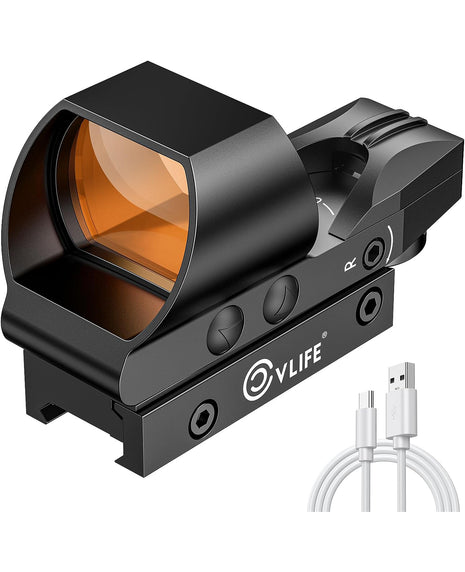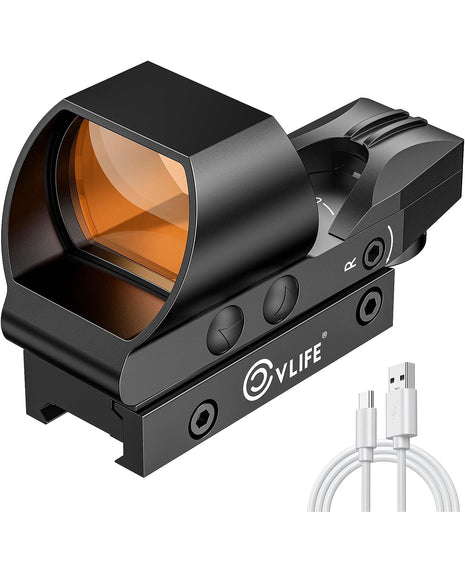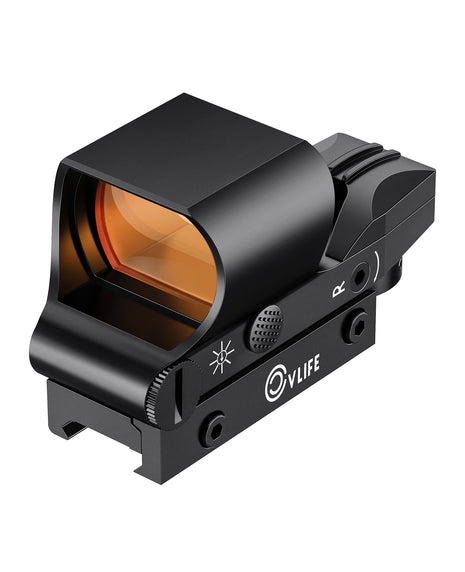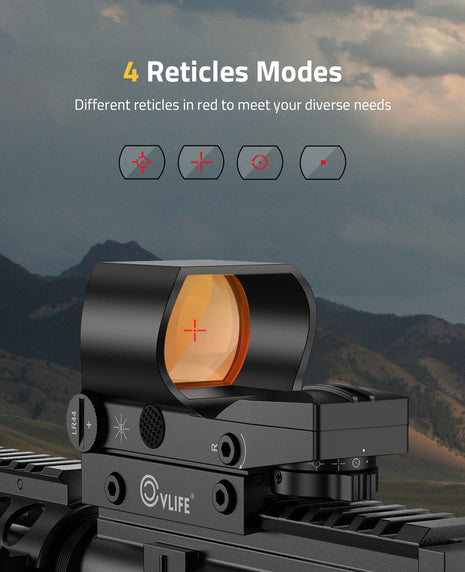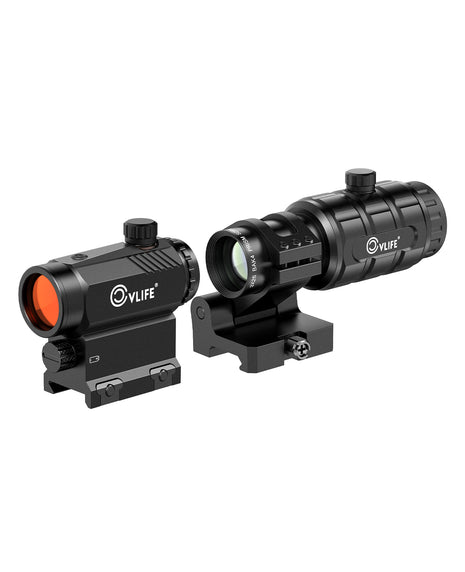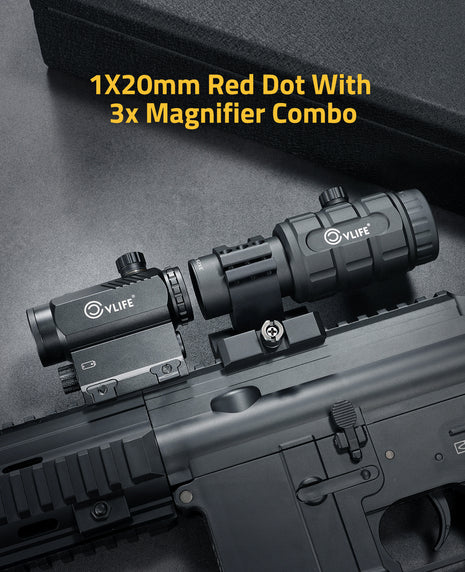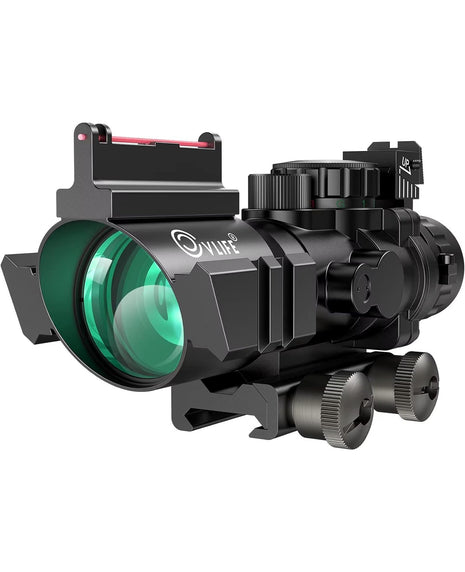Les viseurs à point rouge fonctionnent-ils vraiment pour la chasse en 2025 ?
- Temps de lecture : 12 min
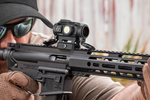
Les viseurs à point rouge sont depuis longtemps un élément essentiel du tir tactique et des compétitions — mais en 2025, ils gagnent du terrain dans la chasse. Certains chasseurs pensent encore que les points rouges ne servent qu’au tir à courte distance — mais la réalité de cette saison montre un rôle croissant pour les points rouges compacts 1x sur les armes destinées au cerf, au sanglier, à la dinde et au gros gibier. Lisez la suite pour des conseils pratiques, des limites de portée fondées sur des preuves, des astuces de montage et des sélections de produits de CVLIFE. 🎯
1. Pourquoi les points rouges deviennent populaires chez les chasseurs
Trois forces simples expliquent la tendance : la vitesse, le poids et la durabilité. Les points rouges modernes offrent un point de visée quasi instantané (un avantage majeur pour le gibier en mouvement), ils allègent votre équipement, et les designs à émetteur fermé ainsi qu’une meilleure gestion de la batterie leur permettent de survivre plusieurs saisons sur le terrain avec un minimum de soucis. Les salons et revues spécialisées en 2025 continuent de souligner les améliorations en durabilité des émetteurs fermés et en autonomie des batteries pour les viseurs réflex — des caractéristiques très appréciées des chasseurs.
Rapide, léger, fiable : Pour les chasseurs qui traquent des cerfs rapides en forêt ou utilisent des configurations véhicule/affût, un point rouge compact réduit le temps d’acquisition de la cible et allège le poids porté toute la journée.
Améliorez votre visée — Achetez CVLIFE Red Dot avec 30 % de réduction (Utilisez le code OCT30)2. Peut-on chasser le cerf ou le sanglier avec un point rouge ?
Réponse courte : Oui — dans les bons scénarios. Les points rouges excellent sur les cibles en mouvement, dans les couvertures denses, et pour les tirs de courte à moyenne distance où la rapidité et un champ de vision complet comptent plus qu’un fort grossissement.
Questions courantes des chasseurs
Q : Peut-on utiliser un point rouge pour la chasse au cerf ? — cliquez pour voir la réponse
Réponse : Absolument. De nombreux chasseurs préfèrent désormais les points rouges réflex 1x pour la chasse à l’affût, le cerf de Virginie en forêt, et les tirs rapides depuis un véhicule ou lors de chasses en battue. Cela dit, il faut être réaliste quant à la portée effective (voir question suivante) et s’entraîner pour garantir des tirs éthiques à vos distances habituelles.
Q : Quelle est la portée idéale pour un point rouge ? — cliquez pour voir la réponse
Réponse : En pratique, la plupart des points rouges sont optimisés pour 50–150 yards pour des tirs de chasse précis et confiants. En dessous d’environ 50 yards, ils sont terriblement rapides ; au-delà de 150–200 yards, vous perdez généralement l’avantage de visée que procurent les optiques à grossissement.
Q : Les points rouges sont-ils efficaces pour les cibles en mouvement comme le sanglier ? — cliquez pour voir la réponse
Réponse : Oui. L'image de visée quasi instantanée et le dégagement oculaire illimité font des points rouges un choix de premier ordre pour mener ou suivre un gibier en mouvement à courte ou moyenne distance — surtout dans les fourrés denses ou les tirs à angle faible où vous devez garder les deux yeux ouverts et maintenir la conscience situationnelle.
Exemple d'ajustement de produit CVLIFE : le CVLIFE Foxspook 1x28x40mm offre un large champ de vision adapté à une acquisition rapide de cible en conditions boisées. Ajoutez un montage cantilever bas ou un montage à détachement rapide pour une installation/retrait rapide selon la chasse.
FoxSpook Viseur Point Rouge 1x28x40mm
Point à large fenêtre optimisé pour le suivi rapide et le travail à courte-moyenne distance. Parfait pour les fourrés, les fusils de camion et les configurations AR.
Voir le produit →
FoxSpook Viseur Point Rouge 2MOA 1x25mm Viseur Point Rouge Lunette Point Rouge
Empreinte compacte pour AR-15 et fusils de chasse ; point 2MOA pour un équilibre entre vitesse et précision.
Voir le produit →
WolfCloak Point Rouge, viseur point rouge/vert avec activation par mouvement
Point rouge/vert sélectionnable avec activation par mouvement — aide à économiser la batterie dans les scénarios d'utilisation saisonnière.
Voir le produit →
3. Point rouge vs lunette traditionnelle pour les chasses réelles
Choisir entre un point rouge et une lunette grossissante dépend de l'habitat, de la distance d'engagement typique et du choix des munitions. Voici une comparaison pratique pour vous aider à décider.
| Comparaison | Point rouge | Lunette traditionnelle |
|---|---|---|
| Vitesse de visée | ⚡ Extrêmement rapide — les deux yeux ouverts | Plus lent — nécessite un alignement des yeux |
| Faible luminosité | Souvent excellent avec des points lumineux & modèles compatibles NV | Variable — le grossissement et la qualité du verre comptent |
| Portée efficace | Meilleur sous ~150 yards | Supérieur pour 150+ yards et tirs longue distance précis |
| Poids | Léger — idéal pour les longues marches, les postes en hauteur | Plus lourd — ajoute de la masse au canon/culasse |
| Parallaxe/Précision | Souvent minimisé en parallaxe aux distances normales de chasse | Haute précision avec des subdivisions de réticule à distance |
Note : votre plateforme (fusil, carabine, AR-15) et les distances de tir habituelles doivent guider votre choix — de nombreux chasseurs emportent les deux options (un point rouge 1x bas pour les tirs rapides et une optique grossissante séparée pour les chasses à plus longue distance). Les points rouges modernes sont désormais souvent considérés aux côtés des optiques traditionnelles pour les équipements de chasse pratiques.
4. Comment monter un point rouge pour une précision de chasse
Un montage et un réglage du zéro corrects sont indispensables. Suivez ces étapes pratiques pour des performances répétables sur le terrain.
- Choisissez la bonne empreinte de montage : La plupart des points rouges compacts s’adaptent aux empreintes standard. Pour les AR-15, les montures Picatinny basses/absolues ou les montures en porte-à-faux sont courantes. Assurez-vous de la compatibilité avec votre rail.
- Réglez le dégagement oculaire et l’appui-joue : Même si les points rouges ont un dégagement oculaire illimité, la position de la tête du tireur doit être constante. Utilisez un rehausseur de joue ou une crosse réglable si besoin.
- Serrez selon les spécifications : Serrez les vis selon les recommandations du fabricant de la monture. Utilisez un frein-filet si nécessaire. Évitez de trop serrer, ce qui pourrait endommager l’optique.
- Confirmez les tirs consécutifs : Effectuez des groupes contrôlés, puis revérifiez le zéro après les premiers tirs pour détecter tout décalage dû au recul. Les conceptions modernes à émetteur fermé et un montage approprié empêchent la plupart des mouvements, mais vérifiez toujours.
- Utilisez un niveau à bulle pour les montages de précision : Pour les plateformes AR ou les configurations de précision, un niveau à bulle empêche l’optique de s’incliner et de décaler le POI.
Note : Si vous utilisez des montures QD, vérifiez la tension du levier QD avant de partir sur le terrain.
5. Quel type de point rouge devriez-vous choisir ?
Deux familles principales de points rouges sont utilisées en chasse : style tube (style prisme ou petit tube 1x) et réflex ouvert. Chacune a ses avantages et inconvénients.
- Tube-style (émetteur fermé) — souvent une fenêtre plus petite, mieux étanche aux intempéries, couramment utilisé sur les carabines où la protection contre les broussailles est nécessaire.
- Open-reflex — champ de vision plus large, acquisition extrêmement rapide ; plus exposé mais plus léger et souvent préféré sur les fusils de chasse et armes de camion.
Considérez la taille du point : un MOA plus petit (1–2 MOA) offre plus de précision pour les tirs plus longs dans la plage efficace du point rouge ; un MOA plus grand (3–6 MOA) est plus rapide pour les tirs très rapprochés mais moins précis à longue distance.
6. Mythes courants sur les points rouges en chasse
Mythe : « Les points rouges ne supportent pas le recul. »
Réalité : Les points rouges modernes à émetteur fermé et un montage approprié sont conçus pour résister au recul des fusils et carabines.
Mythe : « Ils ne sont pas assez précis. »
Réalité : Les points rouges sont à parallaxe réduite aux distances typiques de chasse ; avec un point de 1–2 MOA et un réglage précis, des tirs éthiques et précis sont possibles dans la plage pratique du point rouge (50–150 yards).
FAQ (cliquez sur une question pour révéler la réponse)
Q1 : Puis-je utiliser un point rouge pour la chasse au cerf ? — cliquez pour voir la réponse
Oui — particulièrement pour la forêt, les affûts, et les scénarios de courte à moyenne distance. Confirmez votre distance de tir éthique et entraînez-vous aux groupements à des distances connues avant de chasser.
Q2 : Quelle est la portée idéale pour un point rouge ? — cliquez pour voir la réponse
50–150 yards est la plage pratique idéale pour la plupart des points rouges de chasse. En dessous de 50 yards c’est excellent ; au-delà de 150 yards, vous préférerez généralement une certaine amplification.
Q3 : Un point rouge est-il meilleur qu’une lunette pour AR-15 ? — cliquez pour voir la réponse
Pour les cibles proches à moyennes distances, mobiles, ou les configurations légères, un point rouge peut être meilleur. Pour une précision à longue distance ou lorsque la compensation de la chute de balle est constamment nécessaire, une lunette grossissante est préférable.
Q4 : Combien de temps dure la batterie ? — cliquez pour voir la réponse
La durée de vie de la batterie dépend des réglages de luminosité et des fonctions d’arrêt automatique. Les modèles modernes avec détection de mouvement ou modes veille peuvent prolonger la durée de vie à plusieurs mois voire années d’utilisation intermittente ; emportez toujours une batterie de rechange ou choisissez des modèles activés par mouvement. Les spécifications du produit incluent les durées de fonctionnement attendues — vérifiez la fiche technique de chaque modèle avant l’achat.
Conclusion : Les points rouges ne sont pas une solution universelle de remplacement des lunettes grossissantes, mais en 2025, ils sont indéniablement un outil pratique et en pleine expansion pour de nombreux chasseurs — en particulier ceux qui travaillent en forêt, lors de chasses rapides, en véhicule/à l’affût, ou qui préfèrent des équipements plus légers. C’est pourquoi de plus en plus de chasseurs AR-15 et chasseurs pratiques passent aux points rouges compacts cette saison.
🎯 Chassez plus vite. Visez plus intelligemment. CVLIFE Red Dots — 30% DE RÉDUCTION cette semaine → Achetez maintenant (Utilisez le code OCT30)Étiquettes
Featured collection
Blog posts
-

, par C V When a Red Dot Isn’t Enough: The Case for a 3X Magnifier Combo
-

, par C V Examen du viseur de vision nocturne intelligent BearMight : en vaut-il la peine ?
-

, par C V Meilleur viseur pour AR-15 à moins de 100 $ — Celui-ci n'était pas censé être aussi bon
-

, par ZW CVLIFE Principales erreurs d’optique AR-15 que les chasseurs commettent encore

